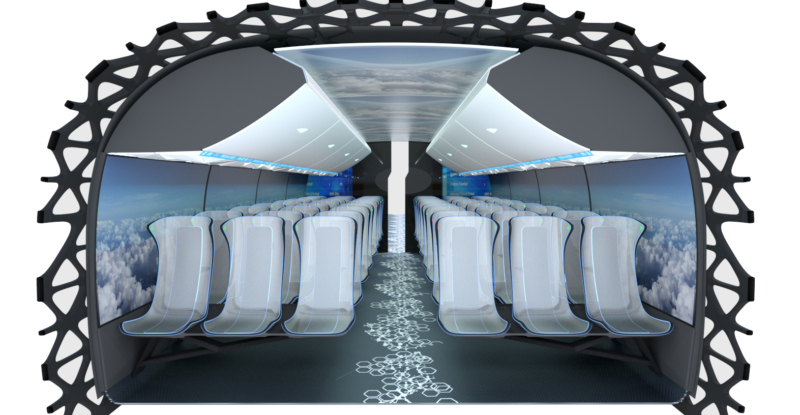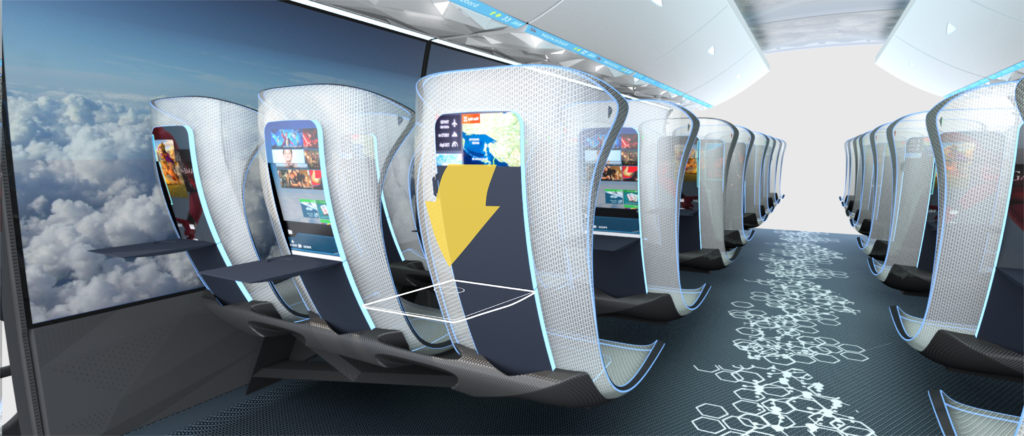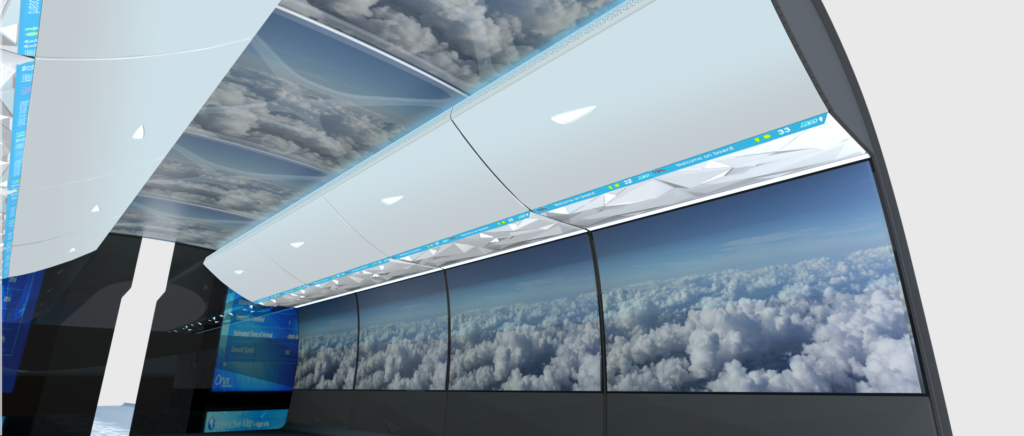 The next generation of passenger aircraft will be setting new standards in terms of sustainability and passenger comfort. FACC AG caused quite a sensation at the international aviation trade fair AIX with the revamping of aircraft interiors. When creating the BIOS FUTURE CABIN, the main focus was placed on the needs of passengers and the use of sustainable materials. The company has opted for a resin derived from sugar cane, which has been optimized for use in aviation through intensive research work.
The next generation of passenger aircraft will be setting new standards in terms of sustainability and passenger comfort. FACC AG caused quite a sensation at the international aviation trade fair AIX with the revamping of aircraft interiors. When creating the BIOS FUTURE CABIN, the main focus was placed on the needs of passengers and the use of sustainable materials. The company has opted for a resin derived from sugar cane, which has been optimized for use in aviation through intensive research work.
Passenger experience at the forefront
“When redesigning the aircraft interior, we paid particular attention to making efficient use of the available space,” explains CEO Robert Machtlinger. The result: 20% more room to move and 50% more storage space compared to current-generation aircraft. This was made possible by a design approach that integrates seamlessly with the load-bearing elements of the aircraft.
In addition, large screens and intelligent surfaces offer a multimedia experience: the entire backrest is transformed into a screen that can be connected to the passenger’s own device, if so desired, and can also play smartphone apps from third-party providers. Via a dedicated control center, each passenger can adjust the ventilation or individually configure design elements.
Barrier-free flying
A 100% wheelchair-accessible cabin and a disability-friendly lavatory are also setting new standards with respect to barrier-free flying. “In terms of accessibility, there is, quite literally, still a lot of room for improvement in aviation,” emphasizes Nico Langmann (world top 20 in wheelchair tennis). “Currently, not only the processes themselves, but also cabin designs are not always suitable for wheelchairs, which is why this new design is very promising.”
A completely new approach to materials
Ultra-light materials made from renewable resources will also drastically reduce the aircraft’s CO2 emissions. To this end, a new lightweight material derived from sugar cane has been developed following many years of research. The properties of this material make it well-suited for use in aviation. Its surface is not only extremely robust, but also resistant to heat and chemicals.
New hygiene concept
A novel air curtain ensures that air is circulated within smaller cabin sections. With this innovation, FACC wishes to contribute to the safety of passengers by making aviation even more resistant to viruses and bacteria in the future.
About FACC
FACC is a worldwide leading aerospace company in design, development and production of aerospace technologies and advanced aircraft lightweight systems. Being the technology partner of all major manufacturers, FACC works together with its customers on developing solutions for the mobility of the future. Every second, there is an aircraft taking off with FACC technology on board. In the fiscal year 2021, FACC achieved 497.6 million Euro in revenues. Approximately 3,000 people from 41 nations are employed at 13 international locations worldwide. FACC is listed on the Vienna Stock Exchange and part of the Fortune-500 Group AVIC, providing access to the largest growth markets within the industry.
All images credited to FACC











